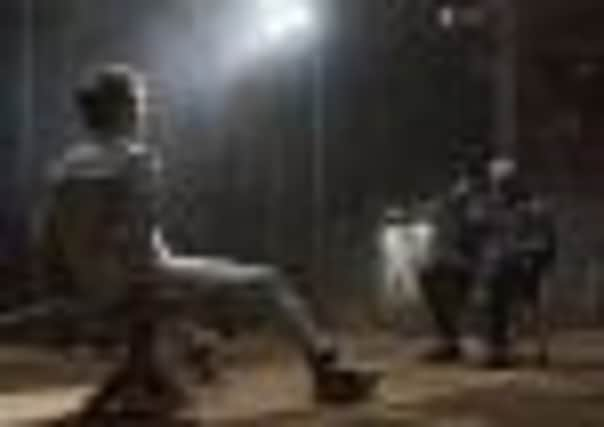Film review: Oblivion


Oblivion (12A)
Directed by: Joseph Kosinski
Starring: Tom Cruise, Morgan Freeman, Olga Kurylenko
* * *
Now that filmmakers have theoretically reached a point where digital technology allows anything that can be imagined on the page to be realised on the screen, the biggest irony inherent in science fiction is the apparent inability of directors to shake off the past when it comes to depicting the future. That’s certainly the case with Oblivion, a good looking but derivative post-apocalyptic sci-fi vehicle for Tom Cruise that borrows elements from decades of genre classics and reconstitutes them in ways it hopes audiences either won’t notice or won’t mind. Nods to Planet of the Apes, Silent Running, Robocop, Total Recall and Wall·E come thick and fast – as do references to a few recent and classic entries into the canon that can’t be explicitly named without spoiling the plot outright. Blended together in a movie that at heart is about the way memories can be used to create an authentic experience, regardless of their source, the results could almost be a clever postmodern joke had the film not been so devoid of humour.
That it’s a sombre affair is hardly surprising.
Co-writer/director Joseph Kosinski made the cheerless Tron: Legacy and first blocked out the story of Oblivion as a graphic novel. This film, then, is a triumph of high-end design over feeling – no mean feat given Tom Cruise brings the full force of his hyper-present intensity to bear on proceedings.
Advertisement
Hide AdHe plays Jack Harper, a soldier, pilot and mechanic roaming the Earth in the aftermath of an apocalyptic war that has been waged against mankind by planet-harvesting aliens. Humans won the battle but have been forced to evacuate the planet – the destruction of the moon and the fall-out from a nuclear holocaust having rendered it inhospitable. Jack’s job – which he conducts in tandem with his mission-control-manning partner Victoria (Andrea Riseborough) – is to maintain the integrity of the giant hydro-energy processors set-up to fuel humanity’s new colony on one of Saturn’s moons. He’s also charged with repairing the deadly drones deployed to hunt and kill any hostile “Scavs” hiding out on Earth. In case they encounter any of the latter, Jack and Victoria have had their memories wiped as a precautionary measure. Jack, though, is haunted by images of a pre-war life in New York that he couldn’t possibly have experienced – and they’re encouraging him to go increasingly off the reservation to find out what’s really out there among the wreckage of civilisation.
Initially this plot development feels like an excuse for the film to indulge in a spot of production design navel-gazing. After bombarding us with a surfeit of backstory and a lot of garbled tech-talk, however, there is something quite pleasing about watching Cruise’s character take in the scenery. This ranges from landscapes scarred with the remains of iconic buildings to irradiated deserts, canyons replete with cascading waterfalls, and even, at one point, a verdant lakeside cabin retreat where a handful of books and vinyl copies of Led Zeppelin II and Duran Duran’s Rio represent the last vestiges of mankind’s artistic achievements.
Lest that suggest a trace of lightheartedness, Kosinski soon starts pulling together a plot in which Jack’s significance to the ultimate fate of the Earth becomes increasingly pronounced. This happens after he rescues a human survivor (Olga Kurylenko) from the wreckage of a crashed spacecraft. Those well versed in sci-fi will doubtless already be piecing together where this is going, but Kurylenko’s arrival in the film does give it a boost, not least because of the traces of jealousy her character elicits in Andrea. Sadly, neither actress is really given enough to do, which is a pity as each manages to suggest layers of ambiguity that, for a little while at least, keep things nicely off-kilter, hinting at interesting directions the narrative could have taken had Kosinski been a little less interested in reverting to a rote, messianic saviour plot for his star.
That’s too bad because in the end, this is a big sci-fi film without a big sci-fi idea of its own (or, at least, a big idea borrowed from elsewhere that it makes its own – a trick The Matrix pulled off with aplomb after cribbing huge swathes of its plot from Ghost in the Shell and William Gibson’s cyberpunk novel Neuromancer). This is most evident in the way Oblivion’s major reveals feel perfunctory rather than jaw dropping. There’s no “whoa” moment, no “spinning top” head-scratchers. Instead Oblivion feels a little too content to get by on spectacle and star-power alone. Which is fine as far as it goes – there are certainly many worse blockbusters out there – but it’s not really enough to make it stick in the memory.